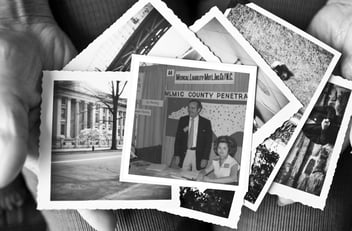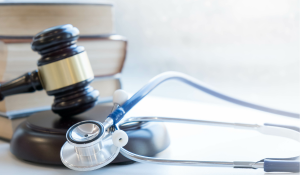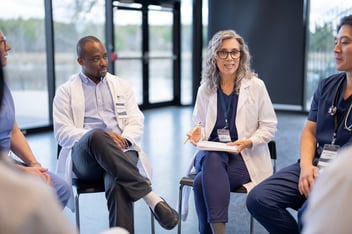Litigation Education: Discovery Phase—Gathering Evidence and Its Role in Your Defense

Foreword by Kristi Wright
The discovery phase of a lawsuit can span months or even years, during which evidence is gathered through written questions (interrogatories), document requests, depositions, and expert consultations. Angela Pozzo, Director of Claims at Curi, discusses how evidence impacts your defense strategy.
As a claims consultant, former litigator, and attorney with a combined 20 years of experience, I’ve assisted numerous physicians navigate the discovery process. It’s natural to feel frustrated with the frequency of the requests for information from your attorney, followed by quieter periods when it seems like progress has slowed. While you should always stay informed, it’s important to understand that this ebb and flow is normal during the discovery process. To help demystify this further, let’s break down the types of evidence your attorney will collect and evaluate during this critical phase.
Understanding the Discovery Process: A Strategic Investigation
The discovery process is an investigative phase where both facts and opinions are gathered. I was taught to think of evidence as puzzle pieces—some fit together, while others don’t. Your defense counsel will scrutinize all gathered information, determine its relevance, and help assemble the puzzle pieces into a compelling defense. At trial, they will present this evidence to the jury in a way that explains how the puzzle pieces come together to tell the defense's case.
Court Rules and Timelines
Some parts of the discovery process are governed by strict court rules and deadlines. Often, a judge may require both parties to agree on a timeline for exchanging evidence and completing deposition testimony. It’s vital that you fully cooperate with your defense team to meet these court-imposed deadlines. Discovery deadlines are meant to protect both sides by ensuring neither party is blindsided by surprise evidence at trial.
Key Types of Evidence
- People:
Your attorneys will need to identify and interview individuals with relevant knowledge of the case. These "fact witnesses" include those present at critical moments, those involved in decision-making, and anyone who has information about the case. Your attorney will know the appropriate methods for locating these witnesses and determine how their testimony fits into the larger puzzle. - Documents/Digital Records:
Your defense counsel will gather and analyze various documents, including medical records, imaging studies, employment records, emails, witness statements, photographs, diaries, calendars, floor plans, policies/procedures, and physical items such as medical equipment. Digital evidence has become an essential part of the process, including electronic health records, audit trails, text messages, social media, and data from health apps and smartwatches. - Expert Opinions:
In addition to fact witnesses, expert testimony plays a critical role. Your attorney will consult medical professionals with specialized knowledge to evaluate whether the standard of care was met and if the actions or inactions of the healthcare provider caused harm or damages. Multiple experts from various specialties may be consulted to complete the puzzle and strengthen the defense. While you are not required to disclose experts to the opposing party who you don’t intend to call at trial, you can seek and gather as many opinions and viewpoints as desired. Experts can also provide medical literature, create visuals, and even produce animations to clarify complex anatomy and physiology related to the case.
Your Role in the Discovery Process
Throughout this process, remember that YOU are the most important source of information for your defense attorney. Your insights and knowledge will guide your attorney in focusing their investigation and finding supporting evidence. Your defense attorney should keep you informed along the way and seek your input. Don’t hesitate to suggest areas of investigation that could benefit your case. Your active involvement is encouraged and vital to the success of your defense.
For even more information about the litigation process, you might want to check out Dr. Gita Pensa’s podcast at this link.
SHARE THIS POST
About the Author











Comments